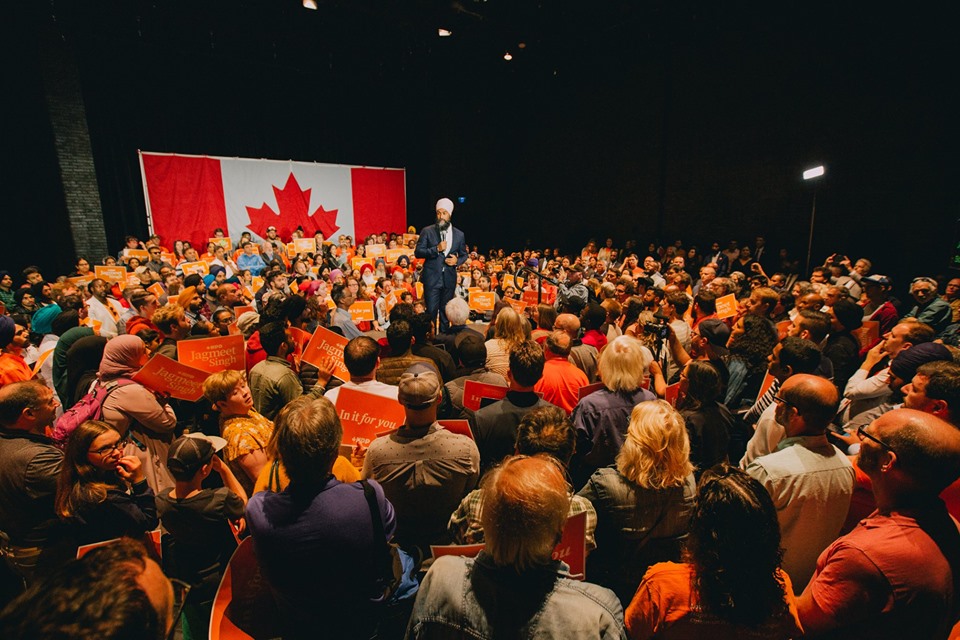A successful election campaign tells a story. “Time for a change” is a favourite that has been used by the Conservatives successfully in the past, by Diefenbaker in 1958, and Mulroney in 1984, for instance.
When image matters more than ever, the internet is omnipresent, and bought media in newspapers, radio and television still attracts attention, the temptation to make a dangerous political rival the object of fear and loathing is hard to resist. And right-wing “faux” populist parties seldom do.
From the time the Liberal Party of Canada selected Justin Trudeau as its leader, his Conservative opponents have been using television advertising to denigrate him and to generate animosity (bordering on hate) aimed at him.
In election 2019, the Conservatives are counting on the cumulative effect of repetition of negative messages for years to undermine the credibility of the Liberal leader and his party.
For Conservative Leader Andrew Scheer, the October 21 election is a referendum on Justin Trudeau: vote against him, he is morally unfit to govern.
Wary of this referendum theme tied to the leader, Team Trudeau wants voters to see this election as a choice between the current government and the previous one, between Liberals and Conservatives, as comparative shopping, if you will.
Vote Conservative, and you get Stephen Harper or Doug Ford, policies of tax cuts for the wealthy, and reductions in services people rely on to meet their daily needs such as health care, public transit or poverty-fighting child benefit cheques.
The Liberals want Canadians to look at one million jobs created and 900,000 Canadians lifted out of poverty, and say: I’ll vote for that.
Jagmeet Singh is running a strong campaign on the most NDP of all stories: Liberals and Conservatives alike act on behalf of the wealthy and multinational corporations; only the NDP listens to the people and acts in their interest.
Singh has revealed himself as a natural campaigner, and his performance has mobilized party members and impressed even media skeptics who had written off the party.
The NDP have 338 candidates reflecting gender parity and the diverse make-up of Canada, with Indigenous, LGBTQ, and visible minority candidates in numbers mirroring their presence in our society.
The explosion of climate as a worldwide concern fuels interest in the Green Party. While the Liberals, the NDP, and the Bloc Québécois have no intention of letting Elizabeth May own the climate issue or leave environmental concerns to Green Party candidates, first-time voters and millennials are looking closely at voting Green.
At the outset, anglophone media and pundits identified “the fight for third place” between the NDP and the Greens as a big sub-theme of the 2019 election.
In fact, the re-emergence of the Bloc Québécois, with leader Yves François Blanchet touting the party as the best choice to defend the “distinct society” is the surprise story of the first weeks of the campaign.
According to a September 25 opinion survey by Leger, the Liberals now trail the Bloc Québécois among francophone voters in Quebec.
In order to make up for expected seat losses in the Prairies and in Atlantic Canada (where the Liberals currently hold every riding), the Liberals covet the 10 Quebec seats won by the Bloc in 2015 (and the 16 seats won by the NDP).
The Liberals’ comfortable lead among Quebec non-francophones is not enough to win them the gains in “the belle province” they need to form a second majority government.
The Liberals are ahead in seat-rich Greater Montreal with 40 per cent support, while Leger has the Conservatives showing real strength in the Quebec City region, polling above 40 per cent.
Should the Bloc consolidate their francophone support, 20-plus Bloc members could find themselves with the balance of power in a minority parliament.
The Liberals won a majority in 2015 by dumping the “balance the budget” narrative that dominated Canadian politics after 1979. A surge in voter turnout led by young voters helped put them in power.
For the first time, millennials make up the largest potential voting cohort. Finding and amplifying narratives key to attracting their support is what will drive the next weeks of the campaign for the Liberals, Bloc, NDP, and Greens.
Duncan Cameron is president emeritus of rabble.ca and writes a weekly column on politics and current affairs.
Image: Jagmeet Singh/Facebook



